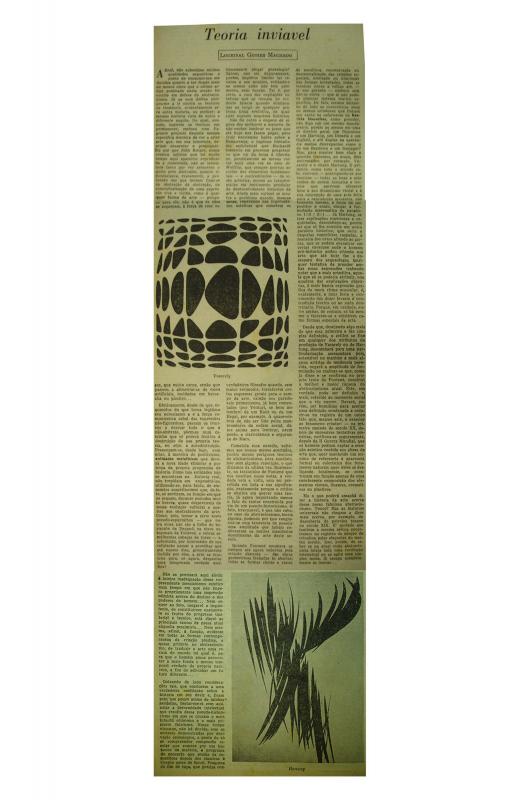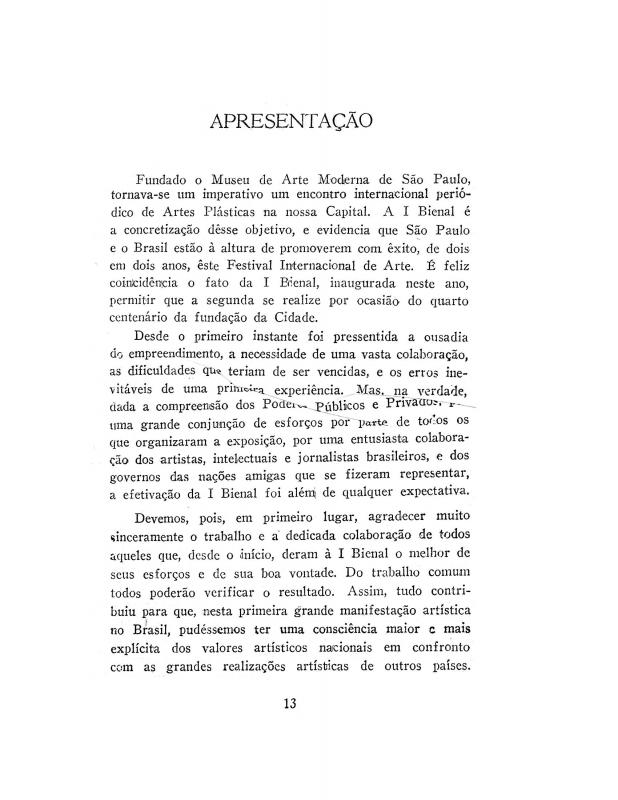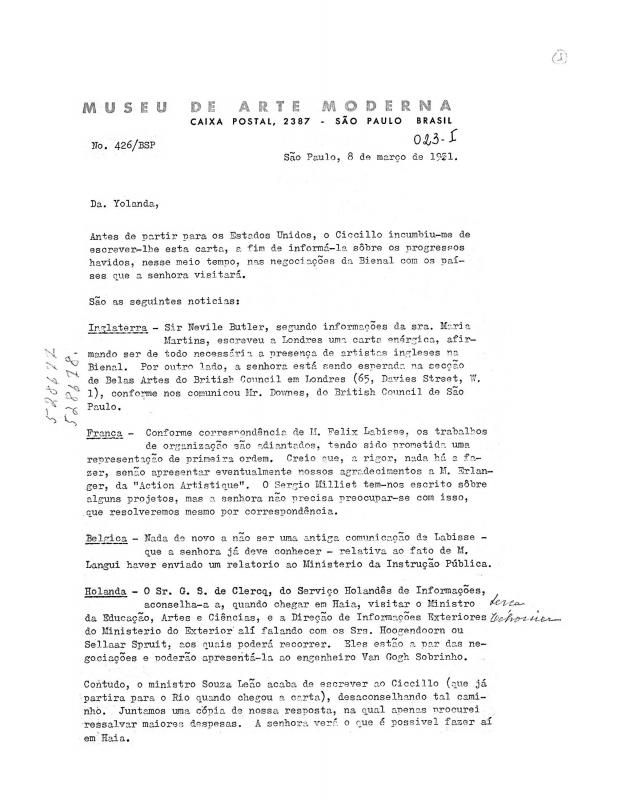In this article, which was published in the Literary Supplement of the newspaper O Estado de S. Paulo in 1959, Lourival Gomes Machado (1917–67) evaluates the V Bienal Internacional de São Paulo, for which he served as artistic director. He had held the same position in 1951 at the event that launched the Biennials in São Paulo. The fifth edition of the Biennial included works by artists from informalist movements, which is why the critic Mário Pedrosa (1900–81) went so far as to call it “offensive, informal, and tachist.” If Gomes Machado understood that abstract trend, in particular, as a reference to non-Figurative and rational art, then the critic is referring to Concrete art, whose rationalist nature he rejects. He had already addressed these ideas on Brazilian Abstract and Concrete art in detail in “No silêncio das paixões” [Under the Silence of Passions], the article that was published on May 3, 1958 in Literary Supplement number 79 of O Estado de S. Paulo, and in the article “Teoria Inviável,” [doc no. 1110729], published on January 3, 1959 in the same newspaper.
Lourival Gomes Machado was a journalist, art critic, and art historian. In 1941 he joined forces with intellectuals such as Antonio Candido, Paulo Emílio Salles Gomes, and Décio de Almeida Prado to publish Clima (São Paulo), a magazine designed to promote a renewal in the fields of Brazilian literary, cinema, and theater criticism. During that decade he was the art critic at the newspaper Folha da Manhã and covered world politics as a columnist at O Estado de S. Paulo. When the Belgian curator Léon Degand quit his job, Gomes Machado took his place as Director of the MAM/SP (Museu de Arte Moderna de São Paulo) (1949?51). His best-known work, Barroco Mineiro (1969), is a collection of articles on the subject, a project he began in 1953 with Teorias do Barroco.
It is of interest to read Gomes Machado’s introductory essay to the I Bienal del Museu de Arte Moderna de São Paulo in which he explains the basic approach to the organization of this great event (see “Apresentação” [doc. no. 1110834]). In addition, he writes a letter to the promoter of the event, Mrs. Yolanda Penteado (March 8, 1951), to inform her of the progress of negotiations concerning the European contributions to the first Biennial to be held in São Paulo [doc. no. 1110824].



